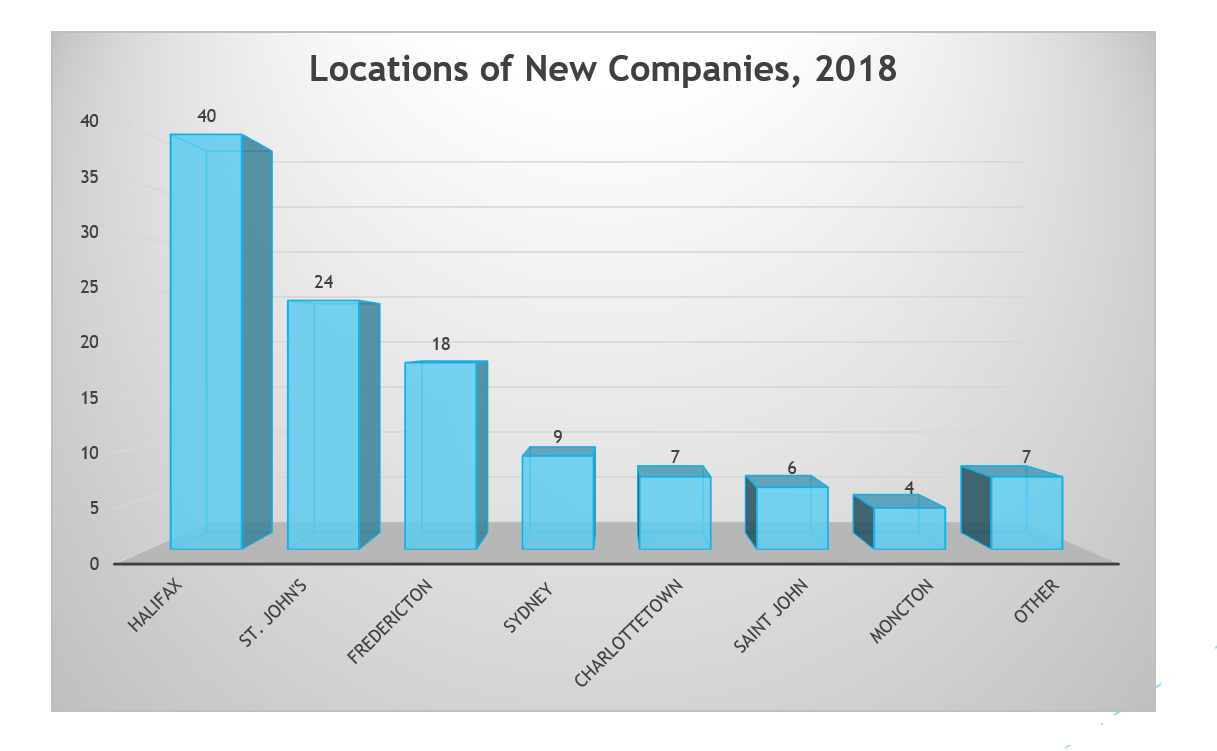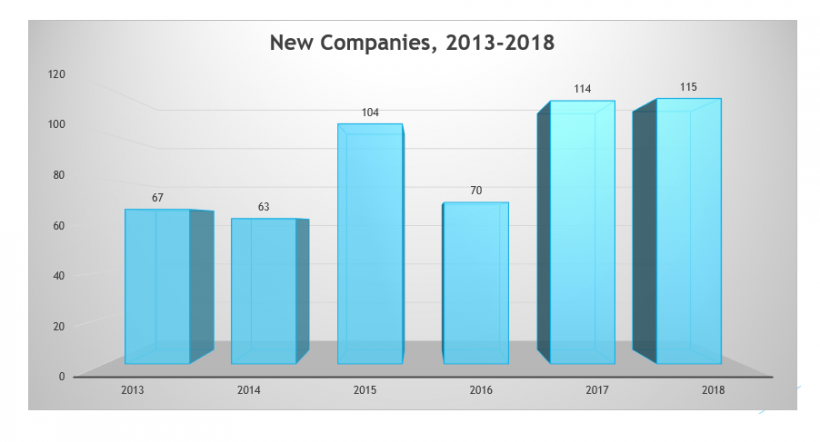One of the changes that have taken place in the East Coast startup ecosystem in the past four or five years is the region has ratcheted up its capacity for launching new companies.
As part of our mission to chart and analyze data on the startup community, we track the new companies that appear each year. As the chart above shows, the region’s ability to crank out startups underwent a steep change between 2015 and 2017. It wasn’t an overnight change, but in three of the last four years the region has launched more than 100 startups a year.
We have catalogued 115 companies that were formed in 2018, up by one over the record level of 2017. We should add that this is the best information we have at this time. Startups often form quietly and then announce their presence a year or two later. Every year we add companies to the data bank that are more than one year old. But we are aware of 115 startups that were born in 2018.
There is no single reason for the improvement – rather it is a lot of little changes that have taken place over the past seven years. Several universities now have dedicated entrepreneurship programs, including Memorial University, Dalhousie University, St. Mary’s University and University of New Brunswick. In Nova Scotia, there are nine “sandboxes”, which encourage student entrepreneurship. Propel offers a virtual, two-phase accelerator called Incite, the first phase of which establishes product-market fit for early-stage companies. There are startup hubs in most cities and other centres like Mahone Bay and Yarmouth. Most important, the startup culture has spread throughout the region, enough that anyone who aspires to launch a company can be directed to a group that can help.

An examination of where the companies formed in 2018 reveals an interesting development: St. John’s has become a hotbed of company formation. The Newfoundland and Labrador capital has almost doubled its number of new innovation companies -- up to 24 in 2018 from 13 in 2017. What’s more startling is that nine of these St. John’s-based companies – more than one-third of the total – are in the life sciences sector. That’s about 40 percent of the rookie life sciences companies in the region.
The reason for the explosion of healthcare startups in the city is the launch of the Bounce Health Initiative, and the support of Memorial Centre of Entrepreneurship Director Florian Villaumé for healthcare innovation. Bounce is a collaborative effort between MCE, Eastern Health, the MUN Faculty of Medicine and the Newfoundland and Labrador Association of Technical Industries, or NATI.
Aside from healthcare, MCE has been crucial in generating new companies, and its Woodward Cup has become a vehicle for giving funding to young ventures. Meanwhile, the Genesis Evolution program provides eight weeks of intensive instruction for companies with less than $1 million in revenues.
The fact that Halifax and Fredericton are Nos. 1 and 3 in company formation should surprise no one – they have been the strongest centres in the region for startup development in the past few years.
As we look ahead to the next few years, we believe the driving force for new startups will be growing entrepreneurship among researchers at the region’s universities and community colleges. This is happening already, with promising companies like Axem Neurotherapy and Canum Nanomaterials coming out of university research. But the structures for bringing research to market will be stronger in coming years.
There is one other thing that’s interesting about new companies – more and more of them are oceantech companies. In 2017, we finally began to see oceantech companies launching in meaningful numbers, and that continued in 2018 with 11 of these companies being formed. We now track 47 companies whose products have marine applications, and 23 of them started in the last two years.










